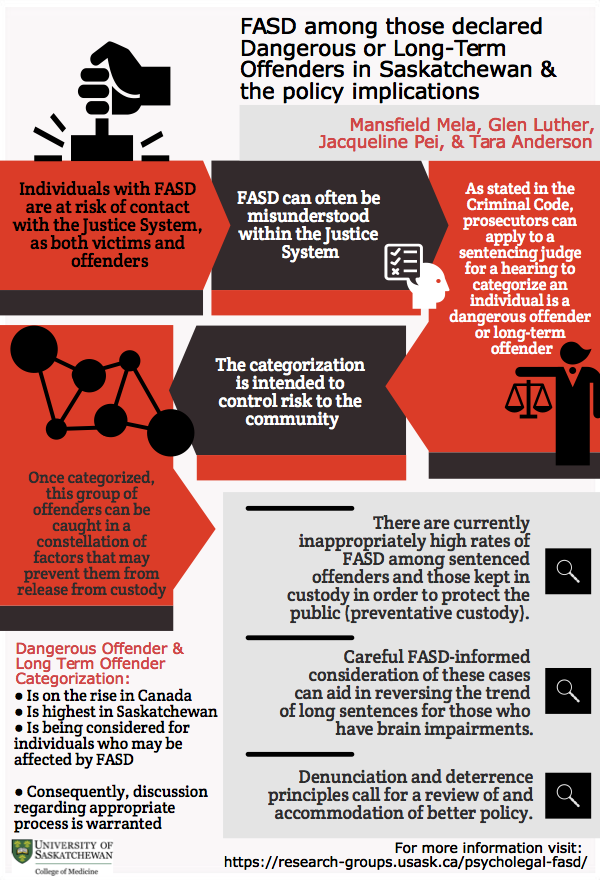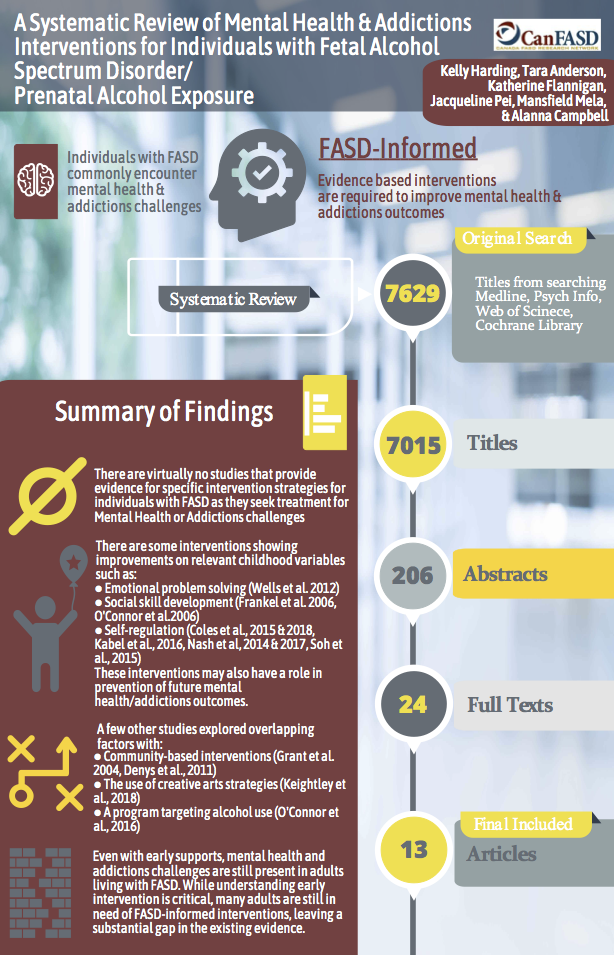Publications & Resources
Doorways to Conversation: Brief Intervention on Substance Use with Girls and Women — Brief interventions are collaborative conversations between an individual and a health care or social service provider about a health issue such as substance use, mental wellness, contraception, or experiences of violence and trauma. Brief interventions may be formal or informal, structured or unstructured, short or long, a one-time event, or a series of conversations over a period of time. This resource focuses on brief intervention with girls and women in the preconception and perinatal period. service providers from a range of backgrounds will find it relevant to their practice.
Course: Perinatal Substance Use and Collaborative Practice — This course is designed for social workers, case workers, and practice leaders who work with women with substance use concerns and their families in acute care and community settings.
CanFASD Issue Paper: Strengths Among Individuals with FASD — The vast majority of FASD research is focused on the challenges and impairments associated with the disability, as well as the burden of FASD on families and the broader community. This type of research can help to validate the experiences of individuals with FASD and their families, and to inform where services and supports might be needed the most. However, the simultaneous lack of strengths-based studies can perpetuate a sense of shame, suffering, and victimization, and contribute to the stigma already associated with FASD. By neglecting to explore the successes of individuals with FASD, we fail to recognize their immense potential and celebrate the unique contributions that each individual has to offer. The goal of the current issue paper was to review the existing strengths-based FASD literature and highlight the need for more studies to fill this critical gap.
Best Practices for Serving Individuals with Complex Needs – Guide and Evaluation Toolkit — This document is intended to provide guidance for individuals and agencies working with clients with a Fetal Alcohol Spectrum Disorder (FASD) and their families. Together as a single source, a best practice guide and evaluation tool kit are provided for use by agencies and their staff. There are two anticipated uses for this resource: 1) to assess current service delivery by providing indicators and outcomes that can be measured to inform practice improvements; and 2) to inform future service offerings by supplying a framework on which to develop policy and practices.
CanFASD Connect – the Canada FASD Research Network blog, a space for engaging and uniting our readers with awareness, evidence, and knowledge about the complexities of FASD.
KnowFASD – The interactive KnowFASD site summarizes the common neurobehavioural features of FASD found in current research and provides intervention resources specific to many neurobehavioural difficulties.
Intervention Across the Lifespan: Where are we at and where do we need to go? — This paper identifies the existing gaps in research and provides an overview of the key needs at different developmental stages within the lifespan of an individual with FASD.
Spreading the Word About Fetal Alcohol Spectrum Disorder. Walls, L (2011). Published on the Canadian Counselling and Psychotherapy Association Blog.
Computer Game Interventions for Individuals with FASD
The Impact of Jordan’s Principle on Children with FASD — Jordan’s Principle is a child-first principle meant to prevent First Nations children from being deprived of essential public services or experiencing delays in receiving them.
Nutritional Supplementation and FASD
Accessible Canada—Creating new national accessibility legislation—In 2016, Minister Carla Qualtrough launched the website Accessible Canada, where Canadians were asked to think about what accessibility means to them and what it could mean for their communities. Between June 2016 and February 2017, over 6,000 Canadians and over 90 organizations shared their ideas about an accessible Canada, culminating in this report.




